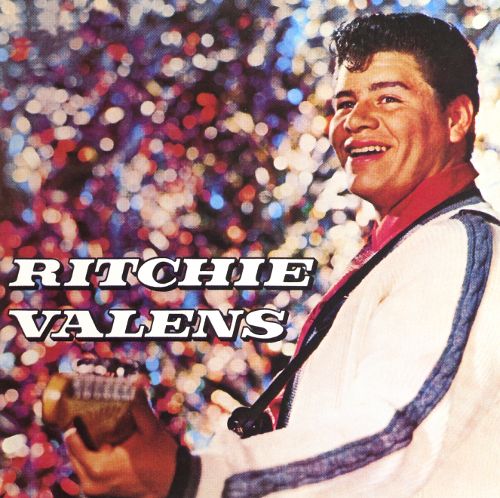It is the late 1950’s in southern California, and a young superstar named Ritchie Valens, whether he knows it or not, is about to change the culture of America forever. In a matter of eight months, the Hispanic student at San Fernando High School just became one of the biggest celebrity musicians of the day.1 After dropping out of school in order to record and tour full time, Richard Valenzuela was making phenomenal Rock N’ Roll music, both on stage and in the studio. While America quickly became obsessed with the undeniably talented teen, nothing could prepare them for his next release.
From the beginning, the odds were against young Richard. He was merely sixteen, and, as a young Latino, there were few opportunities for someone like him in the American mainstream music industry, let alone in Rock ’n Roll. He saw proof of this fact early in his career, facing prejudice and discrimination at every turn. He was even forced to change his name to Ritchie Valens in order to make it easier for his fans to pronounce—a compromise that gave way to controversy and anger from his family.2 Ritchie realized that, even though he was opposed to the changing of his name, it would be a smart move for him as a musician. But even after his family name was taken from him, he refused to let go of his heritage. In fact, it seemed that he tightened his grip.
Ritchie wanted to do something to pay tribute to his Latino culture. With the assistance of Bob Keane of Del-Fi Records, he decided he would combine the two worlds that he was now so heavily a part of, by turning the Spanish tune “La Bamba” into an upbeat rock song. Only knowing English, Ritchie had to learn the lyrics of the traditional Mexican folk song phonetically. After countless takes in the studio, he recorded the song on a two-track record with a second soon-to-be hit Oh, Donna.3
Ritchie released the track and promptly shook up America. Most people had no idea what the song was about, but, for one of the first times in modern music history, they didn’t care. The charismatic rhythm of the song combined with Ritchie’s unique voice; it was impossible to dislike it, and the song spread like wildfire, taking his career to new heights.
Seeing Ritchie perform was a spectacle only few Americans were graced with. His energy and impeccable guitar skills would engage the thousands of audience members from start to finish.4 While the crowd was swooning over every single song, there was nothing like that epic guitar riff that carries the tune of La Bamba.3 As soon as Ritchie’s guitar pick hit his strings, the fans simply could not contain themselves.

Unfortunately, Richard Valenzuela’s career was ended even quicker than it begun. Soon after his explosive rise to fame was sparked, and before he could finish his tour, Ritchie Valens was killed in a plane crash along with fellow artists Buddy Holly and The Big Bopper J.P. Richardson.6 The tragedy triggered nation-wide shock, and the day became known by many as “The Day The Music Died.”7
Although his life was ended much too early, perhaps it was this terrible fate that immortalized him in music history. His music and the rest of Valens’ amazing life inspired the film La Bamba, a timeless and classic film. Ritchie’s brave move in the release of “La bamba” inspired and enabled many other Hispanic artists to begin to make their way into the spotlight, making it much more than just a great song. We see the repercussions still today, through modern Latin Rock bands and all the sub-genres surrounding them, and will without a doubt continue to experience the fruits of the song for decades to come. Needless to say, American music and culture would not be the same without Richard Valenzuela’s audacious contributions.
- Encyclopedia of World Biography, 2004, s.v. “Ritchie Valens.” ↵
- Salem Press Biographical Encyclopedia, January 2017, s.v. “Ritchie Valens,” by Scot M. Guenter. ↵
- “‘La Bamba’ one of the 100 most important American musical works of the 20th century,” Broadcast Transcript. Weekend All Things Considered, NPR, July 15, 2000. ↵
- St. James Encyclopedia of Popular Culture, 2nd ed. “Valens, Ritchie (1941–1959),” Candida Taylor. ↵
- “‘La Bamba’ one of the 100 most important American musical works of the 20th century,” Broadcast Transcript. Weekend All Things Considered, NPR, July 15, 2000. ↵
- Robert Wright, “The Day The Music Died,” Aviation Safety, July 1, 2015. ↵
- “What Went Wrong On The Day Music Died?” Interview by Robert Siegel, Melissa Block, All Things Considered, NPR, February 3, 2009. ↵



163 comments
Richard Navarro
Ritchie Valens was an incredibly talented artist. I always thought that Ritchie spoke mainly Spanish and would have had to learn English in order to produce music. It is kind of funny because I come from a Hispanic background and I don’t speak any Spanish either, not to mention that my name is also Richard with Richie as my nickname. It is sad to hear about how he died so young, I wonder how much more he could have changed Rock n’ Roll if he lived longer.
Rebekah Esquivel
It is so sad hearing that his career was ended before he really got to fully live out a life of fame. I have heard of the movie la bamba and heard the song but have never actually heard the story of his fame. It is so sad that he had to change his name just so it would make it easier on his fans. Changing someones name is changing their whole identity and he did it just to fit in better. I’m glad he still embraced his heritage by making a song in Spanish. It is so sad that his life ended so soon but he made a big impact in music history with the little time he was given.
Michelle Falcon
This was a great article! Everyone has heard of this song at least once in their life time. However not everyone knows who wrote it or the story behind it. It was inspiring to read about how Richard pushed passed all the trials and tribulations that he had to go through because of his Latino culture. I absolutely loved this article, great job!
Mariah Cavanaugh
I used to be slightly obsessed with the movie La Bamba and the actor who portrayed Richie, Lou Diamond Phillips. That is part of why I was so excited when I came across your article. The fact that has always stuck out to me in the Richie Valens story was the fact that Valens wasn’t his last name. They had him change his name because Valenzuela was too difficult to pronounce. He was good enough to perform in front of white crowds but he had to let go of a piece of himself in order to do it.
Ryann Cervantes
Great story about a talented, ambitious musician. I love the fact that he had the guts to drop out of high school and chase his career. What made me enjoy this more was about actually enjoying the song myself and knowing that even my parents heard it. Sadly but maybe true, his death might have been what helped elevate his fame in history, the story of a beloved singer gone at the peak of his career.
Edward Cerna
Amazing article, Richie Valens is one of my all time favorite musical artist. I had no idea that he was forced to change his name for that reason. It was really interesting because I just learned more about an artist that I really enjoy listening too. It is truly a tragedy that his life ended so early, who knows how many more hits he would have made or what he could have accomplished in his lifetime.
Deanna Lummus
Wow! I have listened to this song my whole life and never knew this story! I didn’t know he was killed in a plane crash either. It makes sense though, most musicians or famous people, die in plane crashes. I also was surprised to hear that he was so young when he started to get popular. a true tragedy no doubt. I am really curious why it seems that young up and coming Mexican American artist seem to die young before they hit mainstream America?
Rolando Mata
To be perfectly frank I had only selected to comment on this article because of the sole fact that its subject matter made me question just how this pertains to history. although even with this mindset going in, I found this article to be very well-constructed and informative on someone I never really knew about. I never knew his original name so I appreciated how informative this article was in explaining the legend of Richie Valens.
Dayna Valdez
Very well written article, I really enjoyed that it included a youtube video of him performing. As popular as ‘La Bamba’ was and still is, I had never heard of who had written it or the author’s story behind it. It’s fascinating to read that despite Ritchie Valens Latino background and the struggles he might have gone through to become famous, he was still able to and did it fairly quickly.
Carlos Aparicio
I really loved this article because it talks about the creation of La Bamba and how it had such a huge impact on America at that time! I enjoy reading the short life of Ritchie Valens because it talks about all the accomplishments he made at such a young age. It deeply saddens me how his life ended so short because he had the rest of his life to make his name even bigger. This article was very informative and I enjoyed reading Ritchie Valens’ biography.